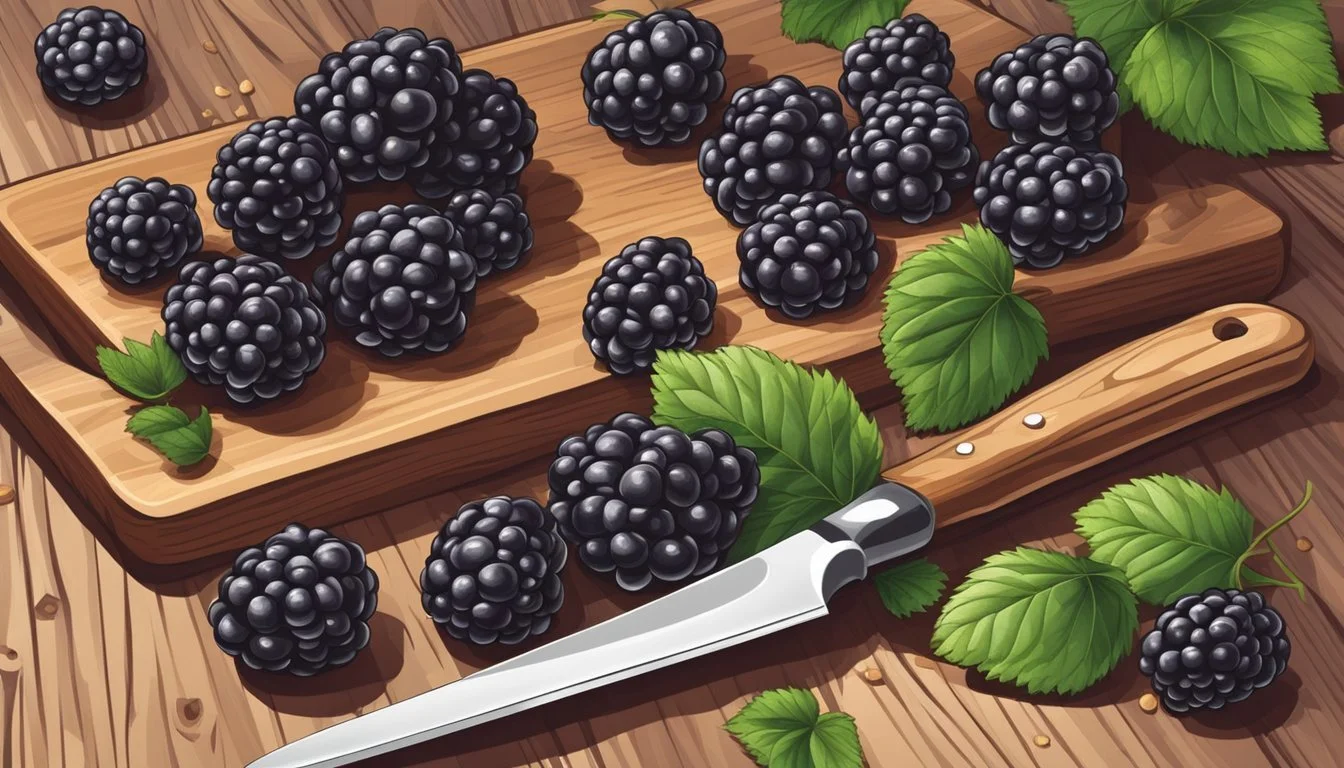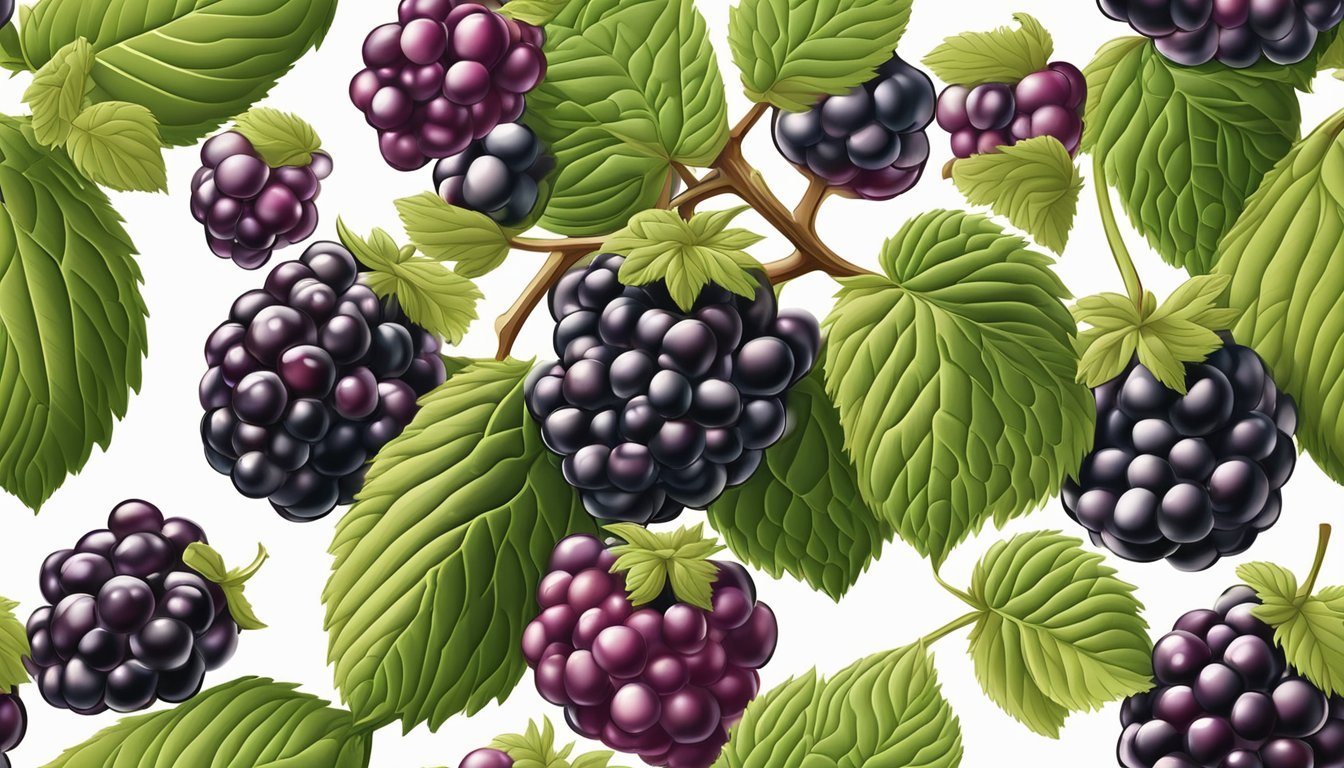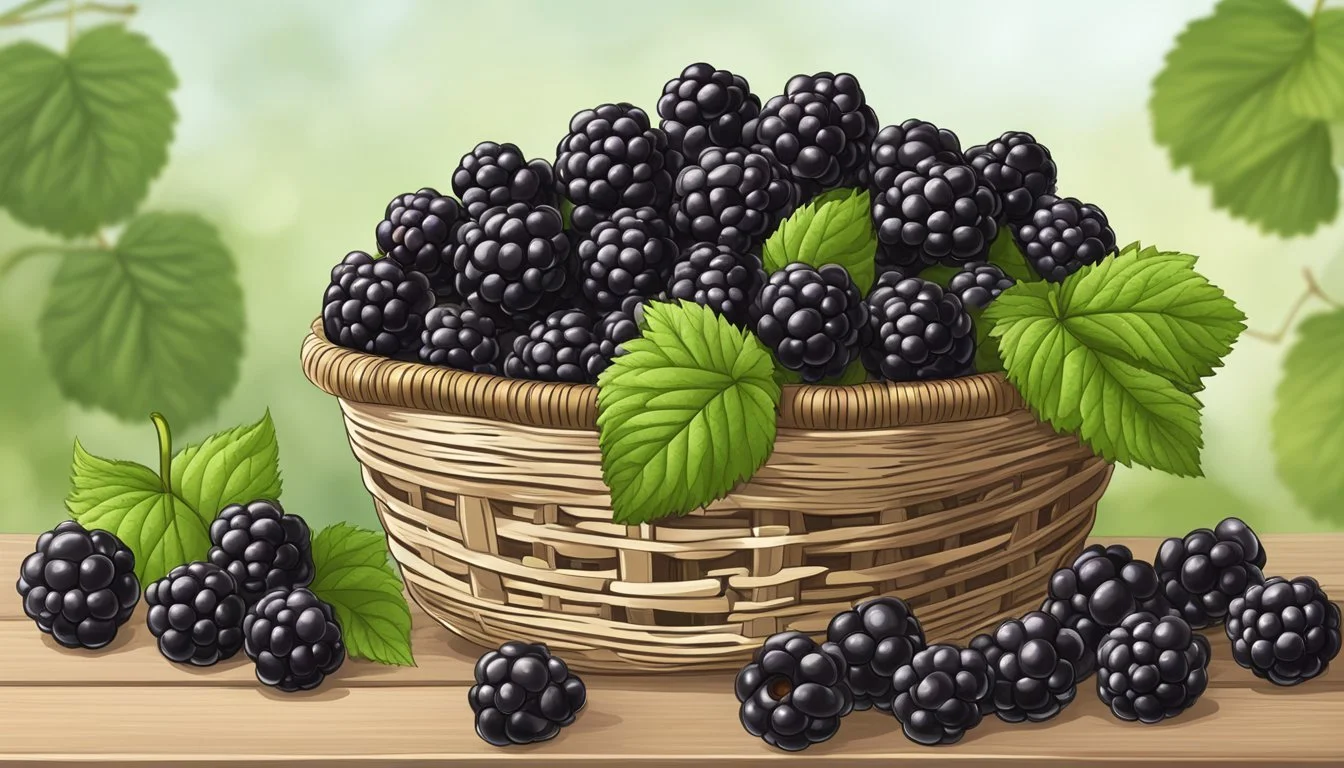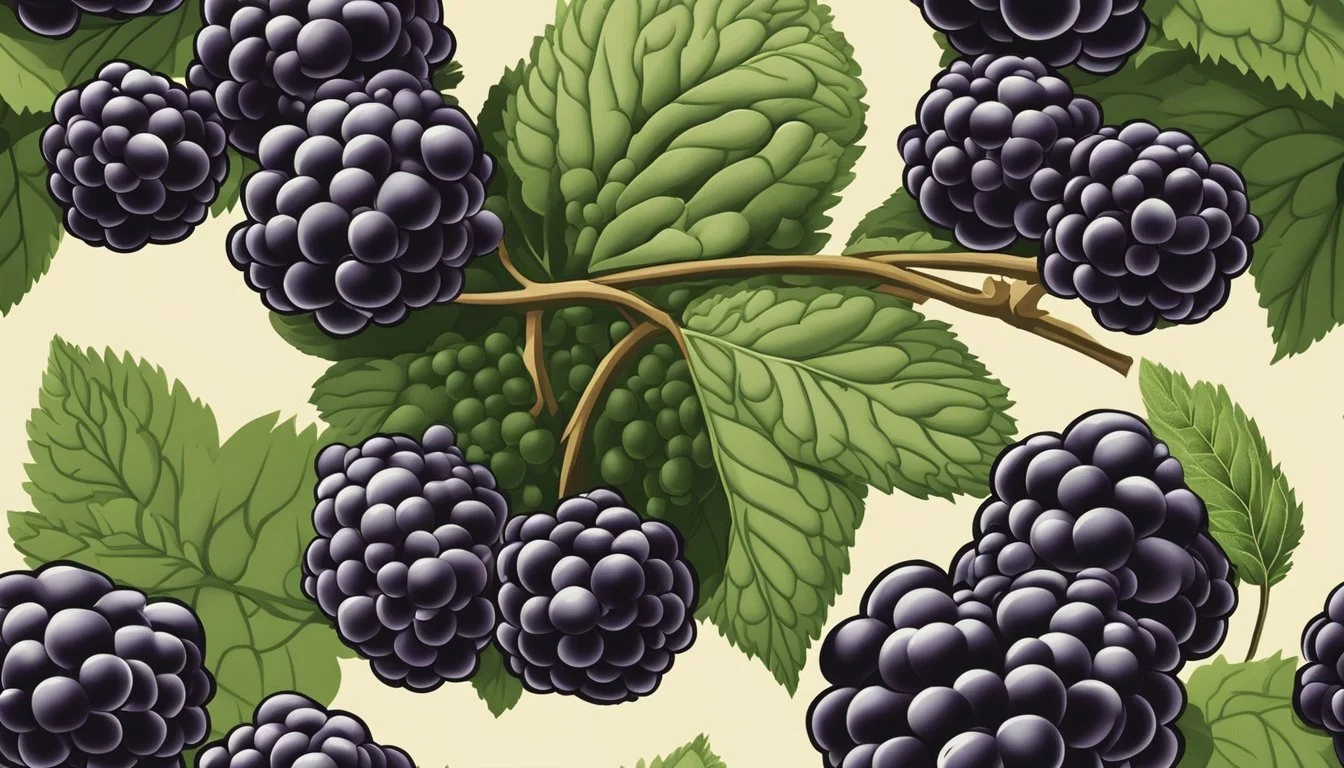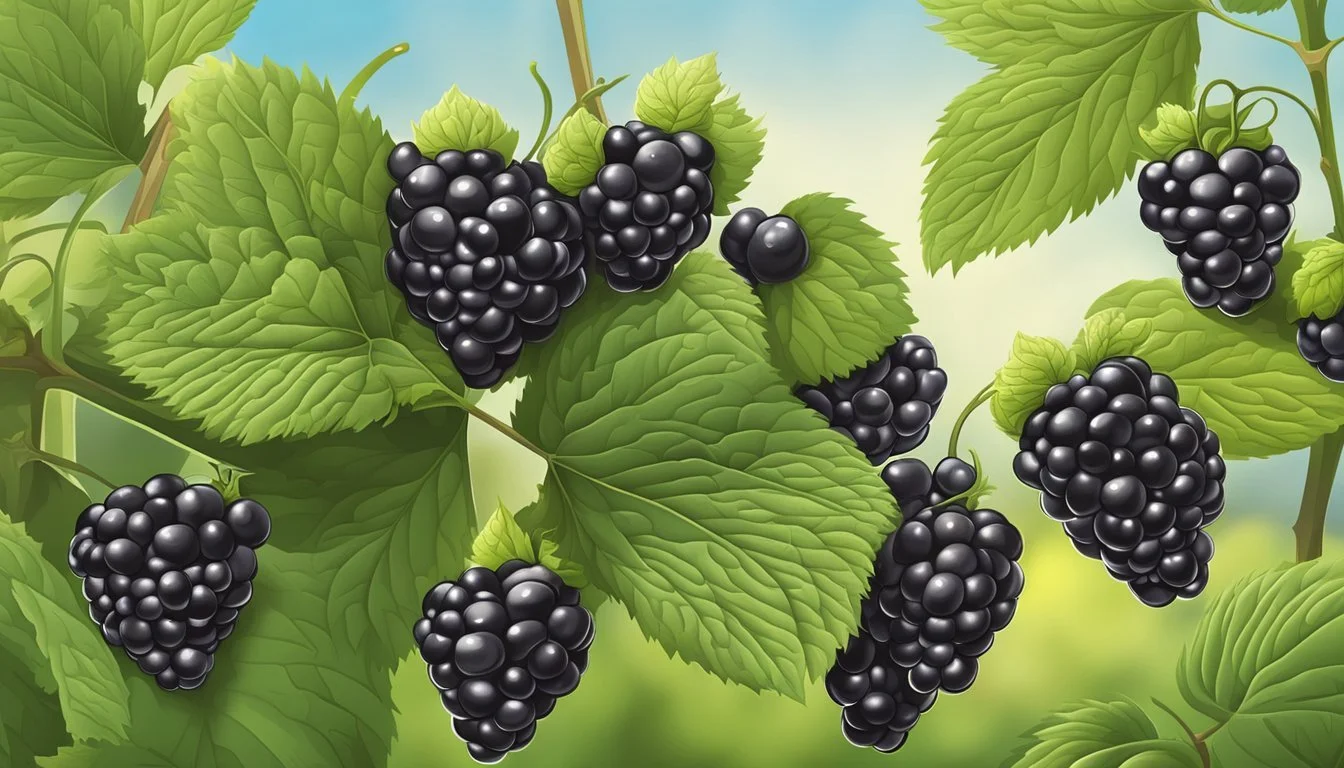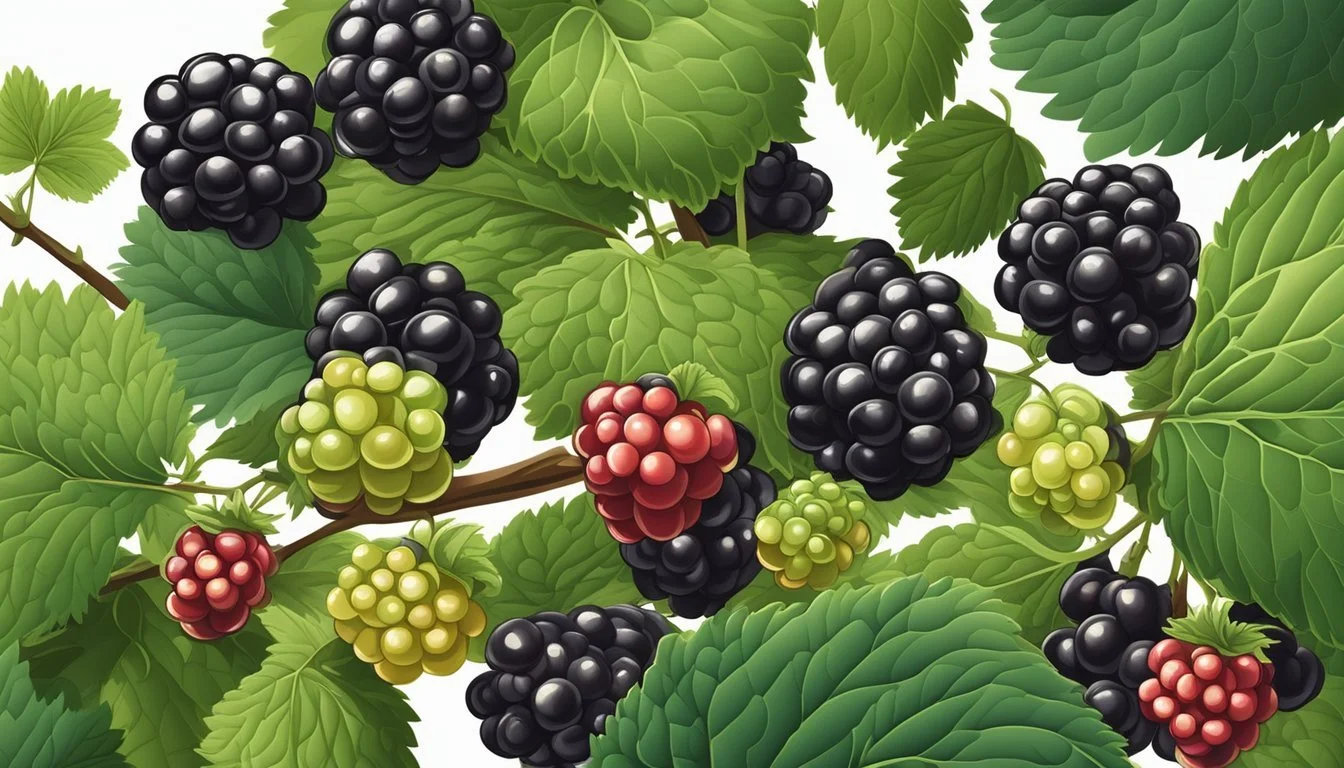Is It Safe to Eat Unripe Blackberries?
Health Implications Explained
When it comes to enjoying blackberries, the ripeness of the fruit significantly impacts both its flavor and nutritional value. Blackberries are known for their sweet and juicy taste when ripe, but before reaching this stage, they can be tart and slightly bitter. The question of safety arises when considering unripe blackberries. Though less palatable, unripe blackberries are not harmful to consume. They offer the same beneficial antioxidants as their ripe counterparts, which protect the body's cells from damage caused by free radicals.
However, the texture and taste of unripe blackberries might not appeal to everyone. These berries are firmer and more acidic, often leading individuals to question whether they should be included in their diet. While culinary creativity can help mitigate the tartness of unripe blackberries, it is essential to identify the proper stage of ripeness to ensure a pleasant eating experience. Aside from considerations of taste, unripe blackberries pose no risk when consumed, though their more enjoyable attributes are best experienced when the fruit is fully ripe.
Understanding Blackberries
Blackberries are a versatile fruit, notable not only for their flavor but also for their nutritional contributions to a balanced diet. When considering their consumption, it's important to assess their ripeness, as it is pivotal to both taste and nutritional value.
Nutritional Profile
Blackberries provide a rich source of essential nutrients, including vitamins and minerals. They are well known for their high content of vitamin C, fiber, and antioxidants. These nutrients are integral for maintaining a healthy immune system, promoting digestive health, and fighting oxidative stress. The profile of a blackberry changes as it matures, with ripe fruits having a higher concentration of sugars and acids that contribute to their sweet and tangy flavor profile.
Vitamins: High in vitamin C and vitamins K.
Minerals: Good source of manganese.
Fiber: Vital for healthy digestion.
Antioxidants: Contains anthocyanins, responsible for their deep color and health benefits.
Ripeness and Color
Ripe blackberries are characteristically deep black and have a slight natural shine, indicating they are ready to eat. They possess a balance of natural sugars and acids contributing to their optimal flavor.
Ripe Blackberries: Deep, dark black with a glossy sheen.
Unripe Blackberries: Red or purple hue, slightly tart due to lower sugar content.
Unripe blackberries are not just sour but may also have a harder texture and contain less of the beneficial sugar content compared to when they are fully ripe. While they still contain vitamins and minerals, the levels of antioxidants and fiber increase as the fruit matures. It's typically recommended to consume blackberries when fully ripe to make the most of the flavor and nutrients they offer.
Health Considerations of Unripe Blackberries
Unripe blackberries may present some health considerations for consumers. These concerns are generally centered around potential risks associated with their consumption and the digestibility of these less mature fruits.
Potential Risks
Tannins: Unripe blackberries contain higher levels of tannins, which can lead to stomach discomfort in sensitive individuals.
Solanine: While not typically associated with blackberries, unripe fruit from some plants can contain solanine, a toxic compound also found in other unripe fruits and vegetables like green potatoes.
Digestibility
Starch Content: The starch content in unripe blackberries is higher compared to their ripe counterparts, which may be harder for the body to digest and can cause digestive issues.
Nutrient Availability: Certain nutrients such as iron and calcium may not be as readily absorbed from unripe blackberries because the ripening process can affect nutrient bioavailability.
Culinary Uses of Blackberries
Blackberries offer versatile culinary uses, ranging from sweet desserts to savory dishes. They can be incorporated into a variety of recipes, each calling for specific ripeness levels to achieve the desired flavor profile.
Ripe vs. Unripe in Recipes
Ripe blackberries are known for their sweet and slightly tart flavor, making them excellent for desserts such as pies and jams. The natural sugar content in ripe fruits enhances the taste of baked goods and fruit-based desserts. They can also be blended into smoothies or folded into blackberry recipes for a nutritious boost.
Pies and Desserts: Ripe blackberries can be baked into pies or served as a topping.
Jams and Jellies: High sugar concentration allows ripe blackberries to gel properly when making blackberry jam.
Smoothies: A handful of ripe blackberries add flavor and nutrition to smoothies.
In contrast, unripe blackberries possess a tart and slightly sour flavor, suitable for certain culinary applications:
Salads: They add a tangy taste to salads when combined with other fruits.
Savory Dishes: Unripe blackberries can complement meats or be incorporated into sauces that benefit from less sweetness.
Preservation Methods
The preservation of blackberries is essential to extend their shelf life and maintain their nutritional value. Here are some effective methods tailored to various uses:
Refrigeration: Store ripe blackberries in the refrigerator to slow down spoilage; place them in a paper-towel-lined container to absorb excess moisture and prevent mold growth.
Freezing: For long-term storage, freeze blackberries on a baking sheet and then transfer to a sealed container; they can be used later in jams, baking, or smoothies.
Preservation Method Ideal For Steps Refrigeration Immediate use Place in container lined with a paper towel Freezing Long-term use Spread on baking sheet, then freeze and store
By using these preservation methods, one can enjoy blackberries' rich flavor and nutrition throughout the year.
Ripening Process of Blackberries
The ripening of blackberries is an intricate process, significantly influenced by environmental conditions and capable of being encouraged through certain home ripening techniques after harvest.
Environmental Factors
The journey to ripeness for blackberries begins on the vine under the influence of their growing environment. The key elements that play a vital role include:
Sunlight: Full sun exposure is crucial for developing sweet flavors.
Temperature: Higher temperatures encourage the ripening process, while colder conditions can slow it down or even result in freeze damage to the fruit.
This combination of sun and warmth must be consistent for blackberries to reach optimal ripeness, which is characterized by a deep, uniform black color and a plump yet firm texture.
Home Ripening Techniques
Once blackberries are harvested, their ripening process can continue off the vine, though they will not sweeten as they would if left to ripen naturally. Here are some techniques that may be used:
Room Temperature: Placing blackberries at room temperature can help them ripen to a degree. However, overripening is a risk and should be screened for regularly.
Paper Towels: To manage moisture and prevent mold, blackberries can be spread out on paper towels in a container or a box with a perforated lid to allow air circulation.
It should be noted that while these methods can improve the texture of the berries, the sweetest and most flavorful blackberries are those allowed to ripen fully while still attached to their parent plant.
Selection and Storage
When choosing and storing blackberries, consumers must focus on the ripeness and condition of the berries to ensure safety and longevity. Proper selection can prevent premature spoilage, and correct storage methods can extend blackberries' shelf life.
Choosing the Best Blackberries
One should select ripe blackberries from the grocery store or produce market by checking for a deep purple to black color, which indicates full ripeness. Unripe berries often display red or green hues and do not continue to ripen after being picked. Consumers should look for berries that are plump and have a glossy texture. Additionally, a fresh, sweet smell is a good indicator of ripe blackberries.
Inspect: Carefully examine the berries for any signs of damage or mold.
Avoid: Bypass any berries that are overly soft or have signs of leakage, as these may spoil quickly.
Storing at Home
To store blackberries at home, consumers should wash them gently in cool water – optionally using a 3:1 water to vinegar solution – and then allow them to drain in a colander or sieve. After washing:
Dry the berries with paper towels to remove excess moisture.
Inspect again for any moldy berries, discarding them immediately to prevent the spread of mold.
Refrigerate the blackberries in a paper towel-lined container to absorb any additional moisture, leaving the lid slightly open to allow for air circulation.
Blackberries should be stored in the refrigerator to slow down spoilage. When stored properly, they can typically remain fresh for 1-3 days. For longer-term storage, blackberries may be frozen, retaining quality for up to six months.
Avoiding Food Waste
While unripe blackberries are not as sweet as ripe ones, they can still be utilized creatively to minimize food waste. Knowing how to effectively use unripe berries and when disposal is the only safe option, are essential to reducing waste.
Utilizing Unripe Blackberries
Unripe blackberries can be tart, but they are still edible and can be used in a variety of ways. They may not have the same sweetness as their ripe counterparts, but they can provide a pleasant, tangy flavor to several dishes.
Cooking: Unripe blackberries can be cooked down with sugar to make jams, jellies, or syrups. These can be used as toppings for breakfast items like pancakes or mixed into oatmeal.
Baking: Incorporated into muffins or bread, unripe blackberries add a tangy flavor and help reduce the need for added sugars.
Pickling: Like green tomatoes, unripe blackberries can be pickled, providing a unique addition to salads or as a snack.
One can also include unripe blackberries in a fruit salad accompanied by sweeter fruits like ripe bananas to balance out flavors.
When to Discard
Sometimes, it may be necessary to discard blackberries to ensure food safety. Blackberries that are damaged or moldy should not be consumed. Mold can spread quickly among berries because of their close contact in packaging.
Visual cues: If blackberries are oozing, have an off odor, or show visible signs of mold, they should be thrown away. It is especially important to discard any berries that have been in contact with moldy ones, to prevent the risk of foodborne illness.
Texture: Berries that are mushy or falling apart are likely overripe or spoiled and should not be used.
While it may seem counterproductive to discard food in a section about avoiding waste, sometimes safety must come first to prevent the risks associated with consuming spoiled or contaminated food.
Blackberries in the Ecosystem
Blackberries play a significant role in their ecosystem, offering both risks and benefits. They are susceptible to pests and diseases which can affect the safety of consuming the fruit, while organic cultivation practices aim to mitigate these risks and promote healthy growth.
Pests and Diseases
Blackberries face several pests and diseases that can compromise the quality and safety of the fruit. Redberry mite is a common pest that targets blackberries, causing the fruit to remain red and unripe. To manage redberry mite and other pests without resorting to synthetic pesticides, growers might employ the use of sulfur and horticultural oils, which are less harmful to the environment.
Common pests and diseases of blackberries:
Redberry mite
Aphids
Botrytis fruit rot
Rust
Control methods may include:
Cultural controls: such as sanitation and removing infected plant material.
Biological controls: like encouraging natural predators.
Chemical controls: using approved pesticides or organic alternatives such as sulfur or horticultural oils.
Organic Cultivation
In organic cultivation, blackberries are grown without synthetic fertilizers or pesticides, which benefits the ecosystem by reducing chemical runoff and promoting biodiversity. A crucial component of this practice is the trellis system, which supports the blackberry canes and facilitates air circulation to reduce disease incidence. Further, organic farmers often opt for cultivating varieties that are naturally resistant to pests and diseases, limiting the need for intervention.
Organic cultivation techniques for blackberries:
Use of a trellis system for support and air flow
Selection of disease-resistant varieties
Application of natural fertilizers to nourish the plants and soil
Avoidance of synthetic pesticides, utilizing organic alternatives instead
By understanding pest and disease pressures and implementing effective organic cultivation practices, blackberries can be produced safely for consumption while sustaining the health of the ecosystem.
Nutritional Comparisons
The nutritional content of unripe blackberries, when compared to other fruits, varies particularly in sugar content and related sweetness, offering insight into their role in a balanced diet.
Blackberries vs. Other Fruits
Blackberries are known for being rich in vitamins and fiber, contributing significantly to a balanced diet. When compared directly to other common fruits:
Vitamin C: Blackberries provide a substantial amount of vitamin C, comparable to citrus fruits like oranges.
Fiber: They have higher fiber content than fruits like apples and grapes, aiding in digestive health.
Caloric Content: Generally, blackberries have fewer calories per serving than sweeter fruits such as plums.
Table: Blackberry Nutritional Comparison per 100g
Fruit Calories Vitamin C (mg) Dietary Fiber (g) Blackberries 43 21 5.3 Oranges 47 53.2 2.4 Apples 52 4.6 2.4 Grapes 69 3.2 0.9 Plums 46 9.5 1.4
Sugar Content and Sweetness
Unripe blackberries contain less sugar than their ripe counterparts, and as a result, present a tart flavor profile rather than sweetness found in mature berries.
Glucose and Fructose: Unripe blackberries have lower levels of glucose and fructose, sugars which increase as the fruit ripens. In contrast, ripe fruits like honey-sweetened citrus have higher concentrations of these simple sugars.
Sweetness Perception: The tartness of unripe blackberries is not as palatable as the sweetness of ripened blackberries or sugar-dense fruits like grapes.
Consuming unripe blackberries may offer dietary diversity but with a different sensory experience and sugar intake than other common fruits.
Innovative Blackberry Products
Exploring the realm of unripe blackberries leads to an array of innovative products. These products harness either the tartness or nutritional benefits of blackberries, offering consumers new ways to enjoy the fruit.
Blackberry-Infused Goods
Blackberry has made its way into a variety of gourmet goods with a distinctive flavor profile. Candies and chocolate chips with blackberry infusion offer a tangy twist to traditional sweets. They incorporate blackberry puree or dried blackberry pieces for a burst of flavor. Jams capitalize on blackberry's natural pectin, making them a staple in the category of fruit preserves. Artisanal jams often feature a combination of ripe and slightly unripe blackberries to balance sweetness with some acidity.
Commercially Available Products
On the market, one can find a range of products that contain blackberries:
Smoothies: Pre-packaged or fresh smoothie blends frequently include blackberries for their vibrant color and nutrients.
Oatmeal: Instant oatmeal packets now include freeze-dried blackberry pieces, which rehydrate when hot water or milk is added.
Fruit Salad: Pre-mixed fruit salads available at grocery stores use blackberries for added complexity and nutritional value.
Ebooks: Culinary ebooks have surfaced, focusing on inventive blackberry recipes ranging from beginner to advanced levels, inspiring home cooks to experiment with the fruit.
__))



